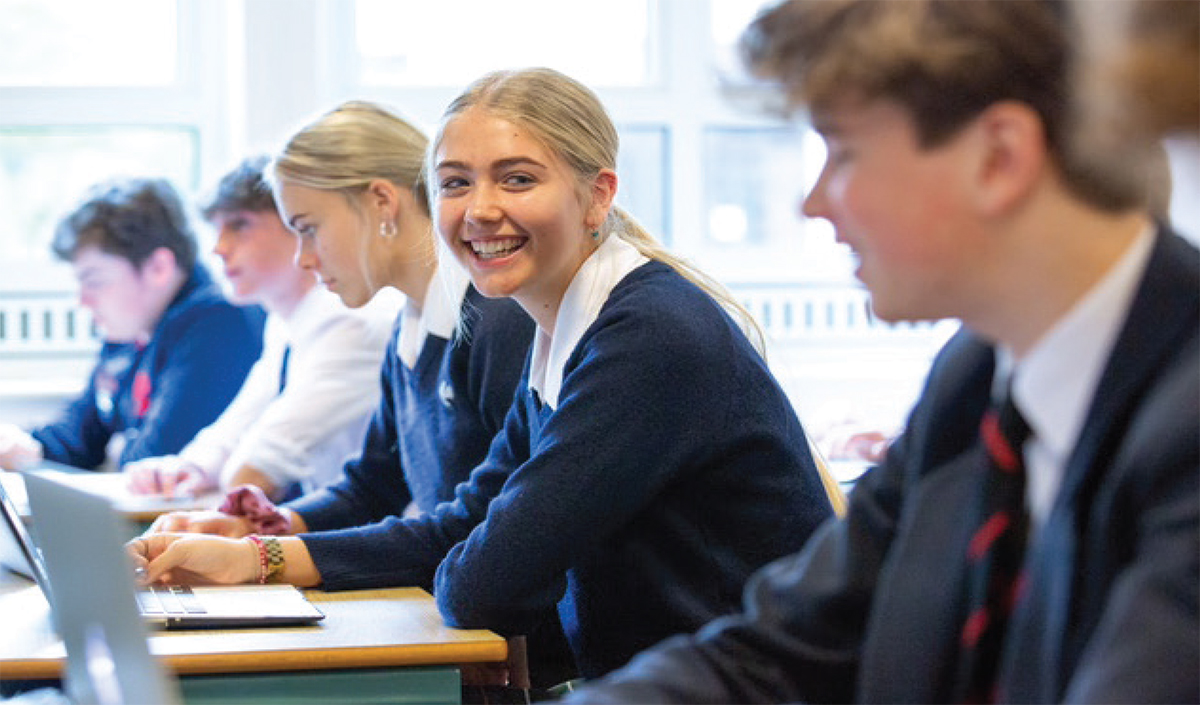
This song rang out across England’s school playgrounds in 1918:
“I had a little bird
Its name was Enza
I opened the window,
And in-flu-enza”
The ‘Spanish flu’ killed three times the number who died in World War I and infected a third of humans. A century later we are facing another deadly pandemic that has already led to the deaths of over one million globally. Then, as now, pandemics present unique educational challenges for teachers and students. I wanted to find out about our students’ and teachers’ experiences before they forgot about this pivotal moment in our world’s history. What was their biggest challenge? What did they enjoy, and perhaps most importantly, what did they learn about themselves as historians in lockdown?
One of the biggest challenges that our history students experienced was staying engaged and motivated. History comes alive during heated discussions and debates. Interruptions, and sudden changes of direction give lessons pace and excitement. The deadening Pinter pauses generated by Microsoft Teams killed the momentum of conversations.
It was more difficult to ensure whole class participation, and check for understanding in real time. Survey feedback showed that no amount of online provision can ever replace the living breathing classroom for historical debates and discussions. In an increasingly automated world, can we derive some comfort from the fact that face-to-face interactions are still so sought after?
Most students responded that it wasn’t the high-tech solutions which engaged them most. The chance to be creative – personal, even silly, seemed to help breathe life into remote teaching. During debates we encouraged students to dress up using props they had at home. Curtains, kitchen appliances and garden soil were used to get into the mindset of Russian serfs. Learners were delighted when one teacher began taking the register by demanding the name of each student’s favourite biscuit.
Being able to break out into channels for pairs and small group work helped to recover a sense of communicative intimacy, and allow more varied approaches to tasks. Something that surprised us was how much enjoyment some students generated from the opportunity to work independently on longer, open-ended projects and presentations. They relished the freedom to go at their own pace without classroom distractions.
The technology we were lucky enough to use did allow for paperless education. However, the pen is not dead! Students overwhelmingly preferred writing notes and essays on paper because it helped them to better remember the evidence.
As teachers, what we feared was how much students would be able to actively memorise to prepare for remote exams. We shortened exams and assessed our Lower Sixth more creatively by giving them panel vivas, and an opportunity to write extended essays in their own time. For some students, the lockdown was understandably a very frustrating experience, and they highlighted the positives of the classroom environment, such as peer motivation, and live pressure from teachers to get on with tasks. However, many students also said how much the lockdown made them realise the value of working in silence, having a clear, dedicated workspace, and how well they were able to motivate themselves at home. At a time when there have been calls for exam cancellation, our feedback would suggest that students really value having some kind of fixed assessment to work towards. Perhaps we just need to think more carefully about the format?
We learnt to treasure the human interactions that first inspired us to go into teaching, and the importance of face-to-face fun. It also made us realise that whilst lockdown introduced many new stressors, both teachers and students gained insight and deployed valuable techniques for achieving a healthy balance between work and play. Something I hope can be applied now that we are all back in the classroom.




